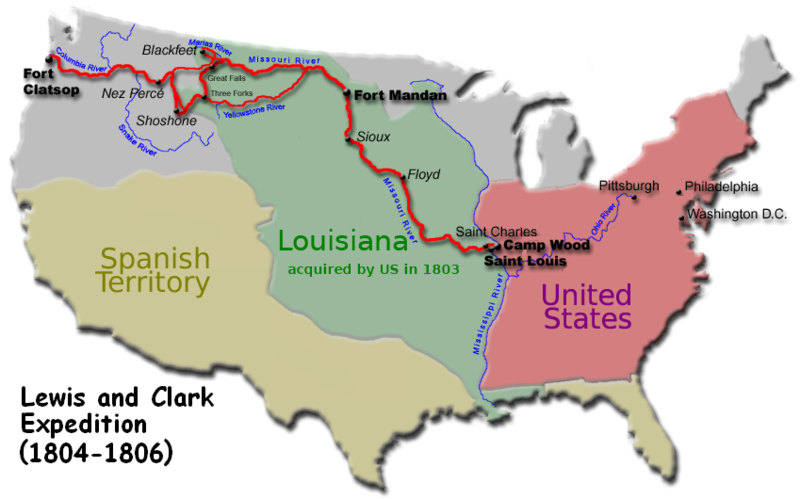Related Flashcards
Related Topics
Cards In This Set
| Front | Back |
|
Election of
1800
|
Adams, Jefferson, and Burr: Adams lost, Jefferson and Burr tied, Hamilton convinced other Federalists to vote for Jefferson to break the tie
|
|
Barbary Pirates
|
North African Muslim rulers solved budget
problems through piracy and tributes in Mediterranean,
obtained fees from most European powers
|
|
Midnight
judges
|
Judges appointed to Supreme Court by Adams in
the last days of his presidency to force them upon Jefferson, Marshall among those appointed
|
|
Marbury v. Madison
|
John Marshall declared that the Supreme Court
could declare federal laws unconstitutional
|
|
Lewis and
Clark expedition
|
 Two individuals sent by Jefferson to explore the Louisiana Territory on “Voyage of Discovery” |
|
Non-Intercourse
Act
|
Sought to
encourage domestic American manufacturing
|
|
Macon’s
Bill No. 2
|
President
has power to cease trade with any foreign country that violated American
neutrality
|
|
Embargo Act
(1807)
|
Prohibited exports (and imports) based in
American ports, most controversial Jefferson
legislation
|
|
War hawks
|
Clay and Calhoun, eager for war with Britain (War of
1812)
|
|
The American System
|
Henry Clay aimed to make the US economically independent from Europe (e.g., support internal improvements, tariff
protection, and new national bank)
|
|
John C.
Calhoun
|
Opposed
Polk’s high-handedness, avid Southern slave-owner (right to own property,
slaves as property)
|
|
William Henry Harrison
|
Military hero from War of 1812; elected
president 1840, died of pneumonia a month later, gave presidency to Tyler
|
|
Battle of
Tippecanoe
|
Decisive victory in the War of 1812 by Harrison
over Tecumseh, used in Harrison’s campaign for
presidency
|
|
Hartford
Convention
|
December 1814, opposed War of 1812, called for
one-term presidency, northern states threatened to secede if their views were
left unconsidered next to those of southern and western states, supported
nullification, end of Federalist Party
|
|
Essex case
|
Declared that US merchant ships could not claim protection under neutral rights when they took French or Spanish goods via American ports to a final destination; Federalist case leading up to Hartford
Convention
|





